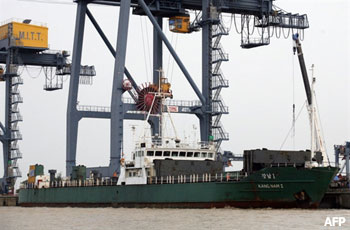The Burmese people have heard it all before. Back during the era of the Burmese Way of Socialism, a big fuss was made about plans for Japanese shopping malls to be set up in Burma. They never materialized...
The Burmese people have heard it all before. Back during the era of the Burmese Way of Socialism, a big fuss was made about plans for Japanese shopping malls to be set up in Burma. They never materialized.
 Then in the 1990s, people heard news about a planned Japanese Industrial Park destined to be built in Rangoon. It was never implemented.
Then in the 1990s, people heard news about a planned Japanese Industrial Park destined to be built in Rangoon. It was never implemented.
At one point, much debate surrounded the plan for the setting up of the Thilawa Special Economic Zone. Despite all the discussions, no progress has been made with this project, although there is some evidence of people investing in real estate around the port.
Now the big news highlighted by Burmese private media is the plan for the Dawei Special Economic Zone (SEZ) and deep sea port. This is a 10-year project involving Thailand and Burma totalling US$ 58 billion, with the first phase costing US$ 8 billion. Interestingly, in the hot discussions about the project, environmental and employment issues top the agenda. The Burmese people and the media have become more aware of environmental issues following the devastation and suffering wreaked by Cyclone Nargis.
In the debate on the pros and cons of the Dawei SEZ, questions have been raised as to whether co-investor Thailand is seeking to export its environmentally damaging industries to Burma to avoid tougher pollution standards at home. Others voice concern about the financial investment involved in such a project and whether the profits will benefit Burma, although the hyper-project will create jobs for the Burmese. Only a few commentators believe it will bring economic development to the country. Some optimists paint it as a win-win game for Burma, but admit that the bigger winner will be Thailand.
In short, the lack of concrete information on the Dawei SEZ indicates a lack of transparency from Burmese government, low trust in the commitment and capability of government officials, and insufficient safeguards and rules to protect the Burmese and their land. Concern has been voiced that the Burmese generals will employ companies that are close to them and that public funds will be funnelled into the deep pockets of the oligarchs.
If––and this is a big if––and when the credibility of the government’s oversight of this project is made transparent, so that the Burmese people can have confidence in the project, then further development projects may be more readily welcomed by the people.


